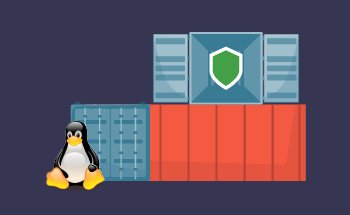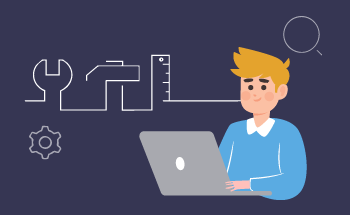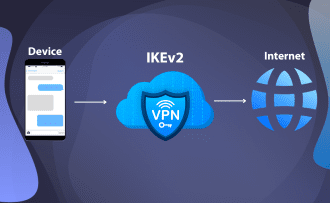Best PHP frameworks for web developers
12:10, 27.09.2023
Development using a PHP framework is not acceptable for everyone: many IT specialists with a lot of experience and experience prefer to do everything by hand. However, the framework can make life much easier, because, in fact, it is a ready-made foundation on which you can build a solid and proven "construction" in the form of a new application with ready-made functions and settings.
The PHP framework itself is a set of ready-made language libraries that are regularly updated and upgraded. The framework's arsenal includes many ready-made modules that simplify the development process. Simply put, you don't have to reinvent the wheel every time - all basic and widely used functions can be found in the PHP framework base. Such modules only need to be slightly adapted to your product, and you won't have to spend a lot of time writing code from scratch.
Advantages and disadvantages of PHP frameworks: should you use them?
Let's walk through the key advantages of using off-the-shelf software platforms that define the structure of a software system:
- Convenience and simplicity. As a rule, the code presented in frameworks has the most simplified and elegant semantics.
- It speeds up the development process and reduces costs. Many frameworks use design patterns, they greatly simplify and speed up the work on software.
- Higher level of security - software written using frameworks is usually more secure than software written in pure PHP.
- All ready-made templates and modules are written according to the Don't repeat yourself (DRY) principle. This principle is aimed at reducing the amount of repetitive code, which is especially important for systems with several layers of abstraction.
In fact, any framework is a unified structure for the software built on its basis. Hence another important advantage - it is much easier to develop and improve such software in the future, because standardized structures will be well understood not only by the author of the original code, but also by any other developers familiar with the PHP framework.
But there are disadvantages to this approach:
- Developing the functionality of the site will take more time than with a CMS - this is due to the fact that the framework structure contains only the fundamental elements of business logic, and some of the functions will have to be implemented manually anyway. This is more complicated and longer than in the case of a CMS, but still faster and easier than in the case of pure PHP programming.
- The bulk of PHP-frameworks are paid.
- There are no ready-made templates of administrative modules, they will have to be organized manually, starting with pages for content management, and ending with working out the authorization system.
How to choose the right PHP framework
There are a number of criteria that are important to consider before starting development:
- Flexibility and functionality - whether the chosen framework has all the necessary tools to realize your tasks.
- Whether the platform is adapted to modern programming methods and allows you to implement those features that are relevant now. In particular, support for object-oriented method is important for modern development, but it is implemented on all modern platforms, so it is not a significant advantage.
- Convenience and scalability for projects created using this or that framework.
- Regularity of updates, quality of support from the community and developers.
- Support for the model-view-controller (MVC) data separation scheme. This scheme allows to separate business logic (model) from its visualization (representation). This approach allows to reuse code in some places, which is especially convenient for projects where the same data should be shown in different contexts at the same time.
Now that that's taken care of, let's take a look at the most popular and relevant PHP frameworks.
Top 5 best PHP frameworks in 2022
Each PHP platform has its own unique features and specifics of use. Some of the frameworks in our top list are paid, but we have also selected free solutions for those who are looking for the most budget-friendly way to implement their ideas. So, let's begin.
Yii
An object-oriented, component-based, open-source PHP framework that was originally developed to simplify and improve the efficiency of AJAX. An important advantage of the platform is its amazing optimization for caching tasks. It is very easy to customize, provides very high performance and has an extremely flexible code toolkit.
The previously mentioned MVC scheme is fully implemented here, and there is a possibility to quickly generate controllers and models through the browser element of Gii - visual interface. Yii framework scales well and is extensible, it contains a lot of tested and ready-to-implement components, including those for multi-level caching.
Laravel
Another top free web framework optimized for software development using MVC architecture. The platform has a number of key advantages:
- elegant and simple syntax that is easy to work with;
- full integration with third-party libraries and platforms, which is good for highly scalable software;
- the basic functionality of the platform can be extended well with add-ons;
- the ability to run tasks asynchronously in the background;
- there are built-in functions for managing routing, accounts, caching, etc.
Laravel architecture is based on a large number of features: packages, application logic, class autoloading, Blade templating, pagination, control inversion and much more. All this makes this framework an optimal choice for both personal projects and corporate-level tasks.
CodeIgniter
A popular PHP framework with a rather simple and convenient configuration, which is suitable for writing as simple and concise applications as possible. With the help of this framework, the process of writing code is simplified to the maximum, and at the end of the process we get high quality optimization and speed of software components.
CodeIgniter is optimal for developing web applications, its toolkit is designed for creating small but elegant software solutions. In addition, the platform has an open source code, so if necessary, developers can dig the framework at the root, adapting the functionality for themselves.
There are a huge number of video tutorials on this web framework on the Internet, which makes it easy and fast for even a beginner to master it. Among the key features worth noting:
- support for MySQL, PostgreSQL, MSSQL, SQLite and Oracle databases;
- the toolkit has a large number of libraries that allow you to adapt the software for any task, whether it is sending mail or working with images;
- possibility to cache SQL queries and generated pages in HTML format on the server;
- modularity is implemented, there is a large number of add-ons;
- possibility to use third-party templating tools.
The platform is licensed under the CodeIgniter License Agreement, it is actively supported by the community, so you can count on regular updates during development. And the cross-platform nature is an important plus.
Symfony
An open source platform maintained by a team of developers from SensioLabs. Symfony has a modular structure, the PHP framework consists of many independent blocks that allow you to develop flexible software with a high level of optimization. Here are the main advantages of the platform:
- a well-developed project ecosystem;
- availability of detailed documentation in different languages, including French, English, German;
- availability of a bug tracking mechanism using unit tests, which simplifies software polishing.
The framework is often used to develop complex multi-level projects, including E-Commerce. It is also worth noting that this is a completely free framework published under the X11 license developed by the Massachusetts Institute of Technology. This is a permissive license that allows programmers to safely use licensed code in closed software.
Zend Framework
A free PHP framework, also known as The Laminas Project. The platform is based on the MVC principles with all the advantages and disadvantages. It also contains many libraries that will be extremely useful when building applications with the integration of popular services - YouTube, Instagram, Tik-Tok and others.
All Zend Framework components are written in PHP 5 object-oriented code, and a very flexible linking architecture is implemented here. This means that individual parts of the project will have minimal dependencies on each other.
An important advantage of this framework is its versatility - it is compatible with all current database management systems, including MariaDB, MySQL, Oracle Database, IBM DB2, Microsoft SQL Server, PostgreSQL, SQLite and Informix. Zend Framework is considered one of the best solutions for those who prefer object-oriented programming for website and software development.
Conclusion
We hope that our Top 5 PHP frameworks will help you decide which development platform to choose. If you have any questions, feel free to contact our specialists. We will answer all your questions and also provide favorable conditions for renting servers for hosting projects of any complexity.


